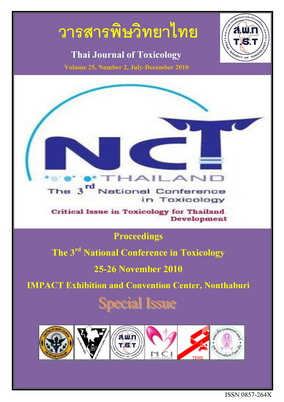Site-Directed Mutagenesis of HPV16 Spliced E6 Protein and Localization Patterns
Main Article Content
Abstract
Infection of cervical cells by high risk human papillomaviruses (HPVs), such as type 16 and 18, is a well-known cause of cervical cancer. E6 is one of the two main HPV oncoproteins responsible for cellular transformation and immortalization. The high risk HPV16 E6 gene generates a spliced form of 43 amino acids, so called E6-I, whose precise role is not known. Cellular localization of HPV16 E6 protein containing both full and spliced forms was previously shown to be dispersed in the nucleus and the cytoplasm, whereas full-form E6 protein was preferentially localized in the nucleus. Our previous results indicated that E6-I localized equally both in the nucleus and the cytoplasm. Based on amino acid sequence homology between E6-I and the N-terminus of E6, the E6-I protein contained only a weak nuclear localization signal whereas the full-form showed three of them, a combination of which generated a strong signal. In this study, we generated E6-I variants by site-directed mutagenesis and examined their localization in a human embryonic kidney cell line, 293T, in order to determine residue(s) necessary for nuclear localization of the spliced protein. Our results indicated that a weak nuclear translocation signal present in E6-I was not sufficient for its nuclear entry since mutations in this region did not affect their localization patterns which suggested that other amino acid sequences or E6-I binding protein might be required for E6-I to enter the nucleus.


